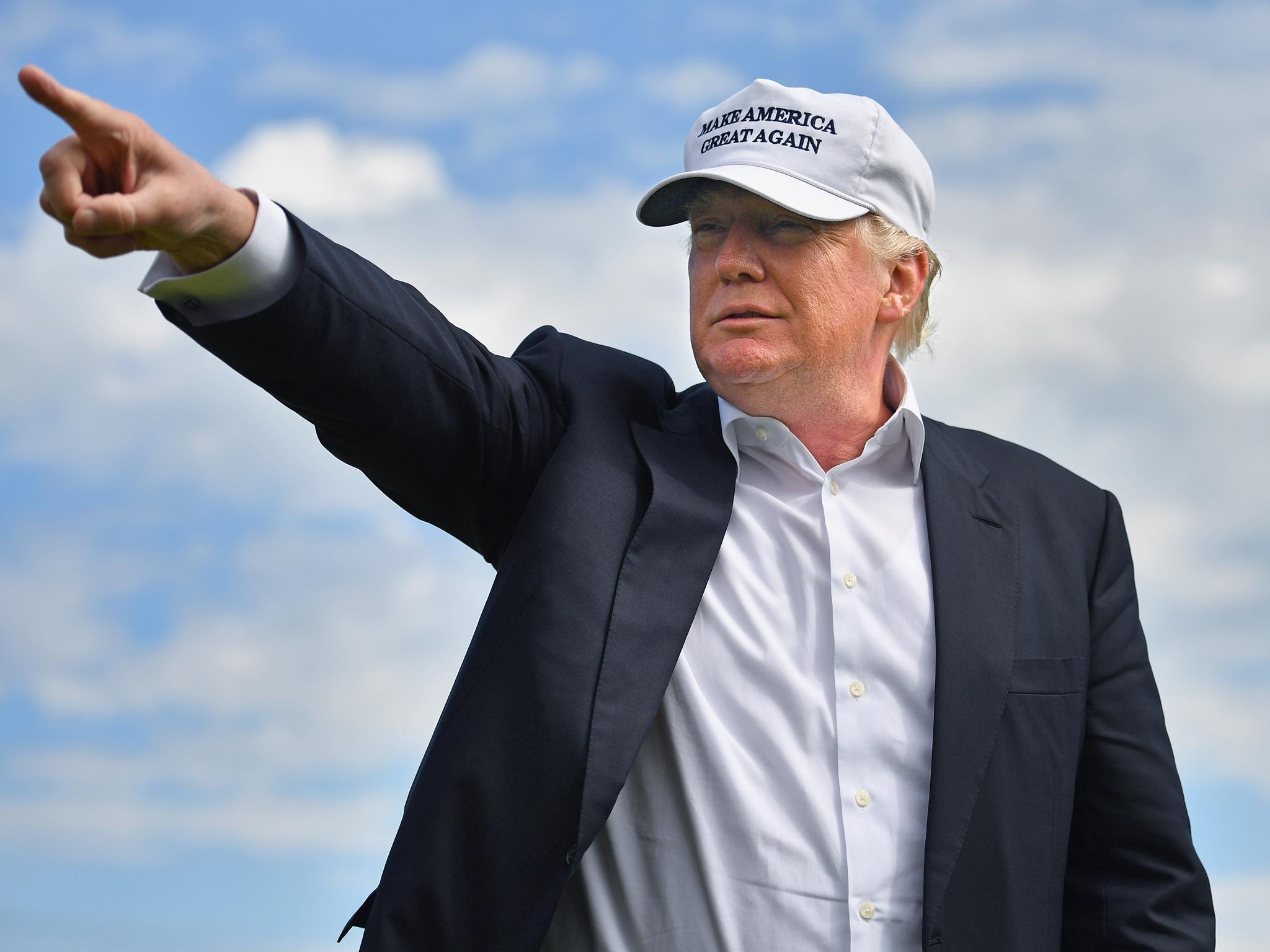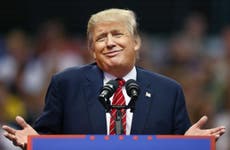Donald Trump's 'America First' philosophy is of stark concern to Nato allies
Trump pledges to only help other countries if they have 'fulfilled' their obligations to the US


Donald Trump's latest warning that, if elected president, he may cut his country’s commitment to Nato has caused deep alarm among America’s allies and dismay in the US foreign policy establishment – and understandably so.
They strike at the central underpinning of the alliance in its near 70 years of existence, that an attack on one member is an attack on all and that the US, in practice Nato’s guarantor power, would come to the aid of the victim of aggression.
His remarks came in an interview with the New York Times that also highlights his longheld mercantilist views on trade. They do not break dramatic new ground. But they are his most forceful on the subject yet, and will surely feature in his acceptance speech wrapping up the Republican convention in Cleveland.
As such, they will be music to the ears of adversaries like Vladimir Putin – above all Mr Trump’s refusal to provide an unconditional assurance the US would come to the defence of the Baltic states, Nato’s newest members and under mounting pressure from Russia.
For Mr Trump, in defence as in trade, what matters most is America’s economic interest. On both fronts, US partners were taking advantage of a generosity that America could no longer afford. That applied to trade agreements like Nafta (“If I don’t get a change, I’ll pull out in a split second,” he told the Times) but also to the umbrella of Nato protection – in other words, US protection – in time of crisis.
Not even the Baltics, faced by threatening Russian manoeuvres close to their borders, were exempt from the rule. Could they count on US military aid if the Russians attacked? “Have they fulfilled their obligations to us?” was Mr Trump’s reply. “If they fulfil their obligations to us the answer is yes.”
In effect, the businessman’s stance places an unprecedented question mark over Nato’s Article 5, which declares that aggression against one member is an attack on all. Ironically, the only country on whose behalf the Article has been invoked is the US itself, after the 9/11 terrorist attacks.
The uitimate question of Nato has always been whether in the event of a Russian invasion of, say, Estonia, the US would be ready to risk an escalation that could trigger a nuclear exchange. Belief that it was ready has kept the peace. Under a president Trump that belief would be weakened – at the very moment Nato faces an assertive Russia, precisely the threat the alliance was created in 1949 to deal with.
In some respects, the ‘Trump Doctrine’ is more conventional, and might find private agreement in unexpected quarters. Even some US allies have been irked by the country’s habit of preaching human rights to all and sundry, given the violence on America’s streets and its record of torture against terrorist suspects.
Mr Trump has suggested he would, if anything, step up the use of waterboarding and the like. But he was effusive in his praise of Recip Tayyip Erdogan, despite his massive purge after last week’s failed coup, amid fears that Turkey’s autocratic president will exploit the crisis to extend his own power, at the expense of Turkish democracy.
“When the world sees how bad the United States is and we start talking about civil liberties, I don’t think we are a very good messenger, “ he said. America must first “fix its own mess” before lecturing others about behaving better.
Such is the candidate’s gospel of ‘America First.’ For Mr Trump, hhis philosophy has nothing to do with the isolationists who marched under that banner in the years before World War II. But his views on Nato, his scepticism of foreign trade deals, his disinclination to get involved in the internal affairs of other countries are all rejections of the internationalism that has guided US presidents, whether Republican or Democrat, since 1945.
Small wonder that the vast majority of America’s foreign policymakers and its friends abroad are aghast at the thought of Donald Trump in the Oval Office.





Join our commenting forum
Join thought-provoking conversations, follow other Independent readers and see their replies